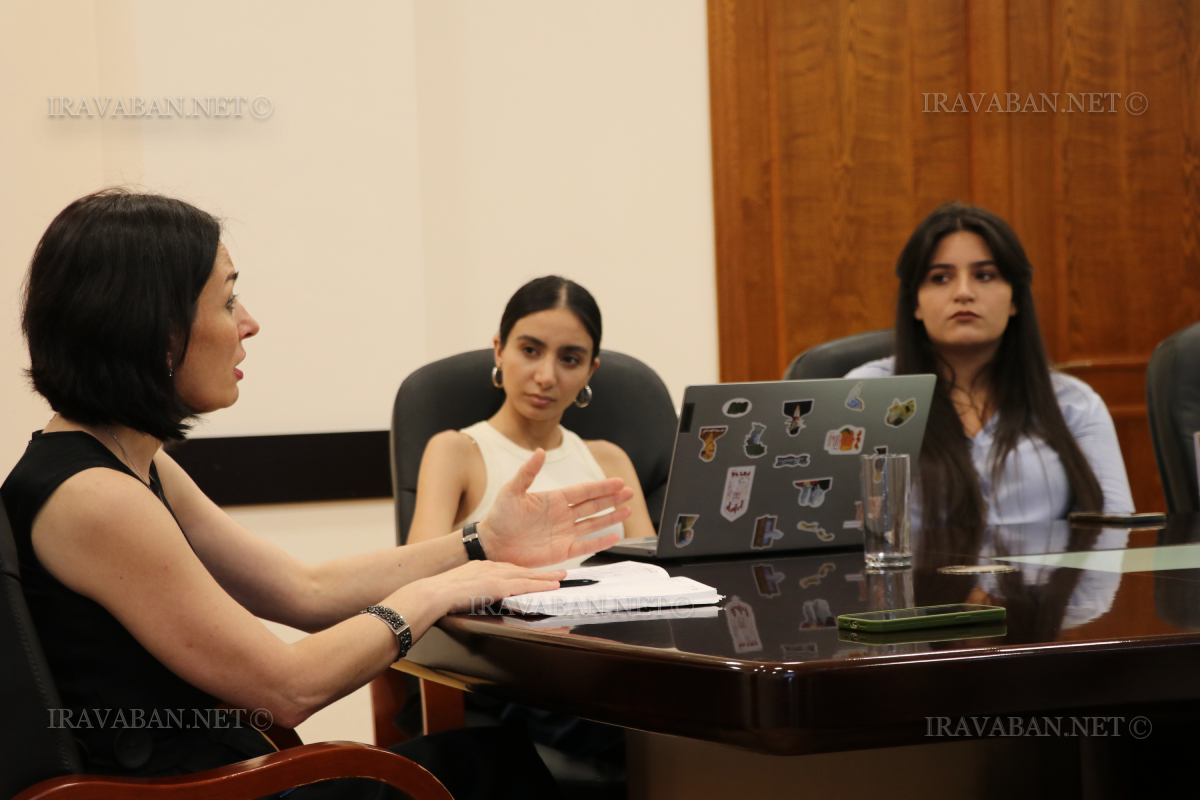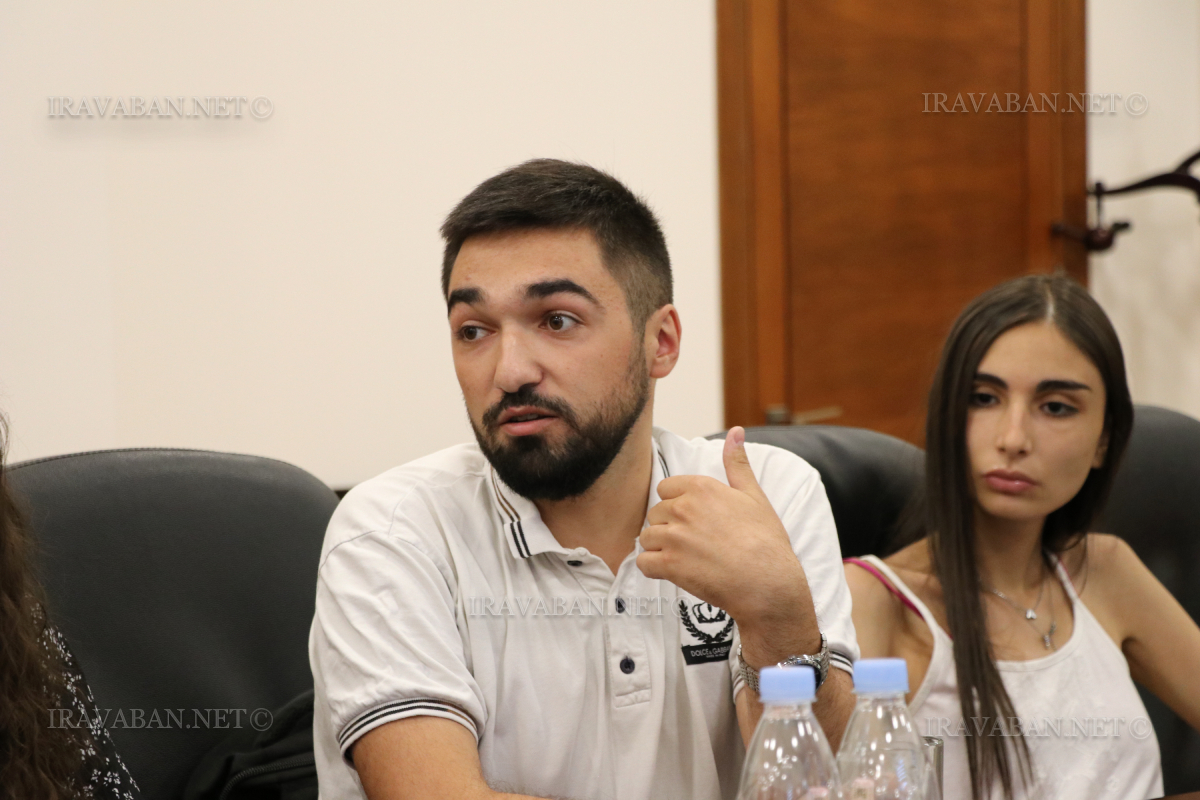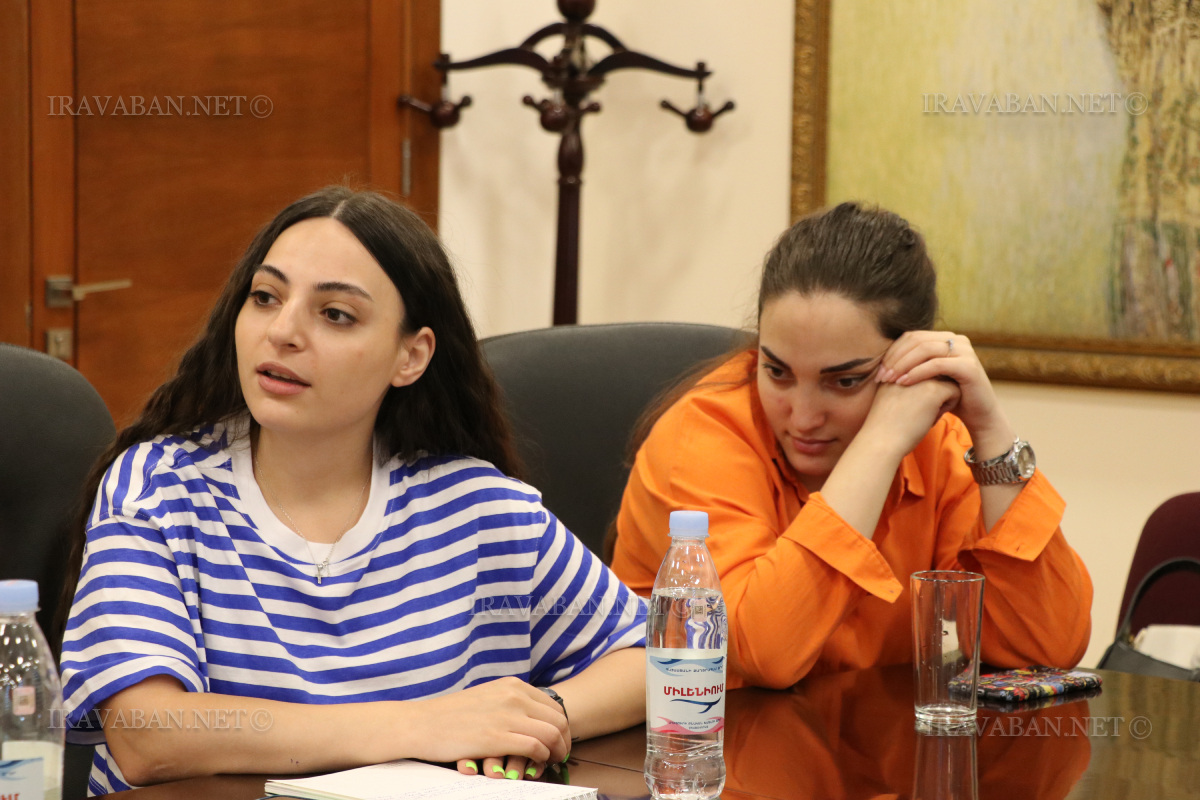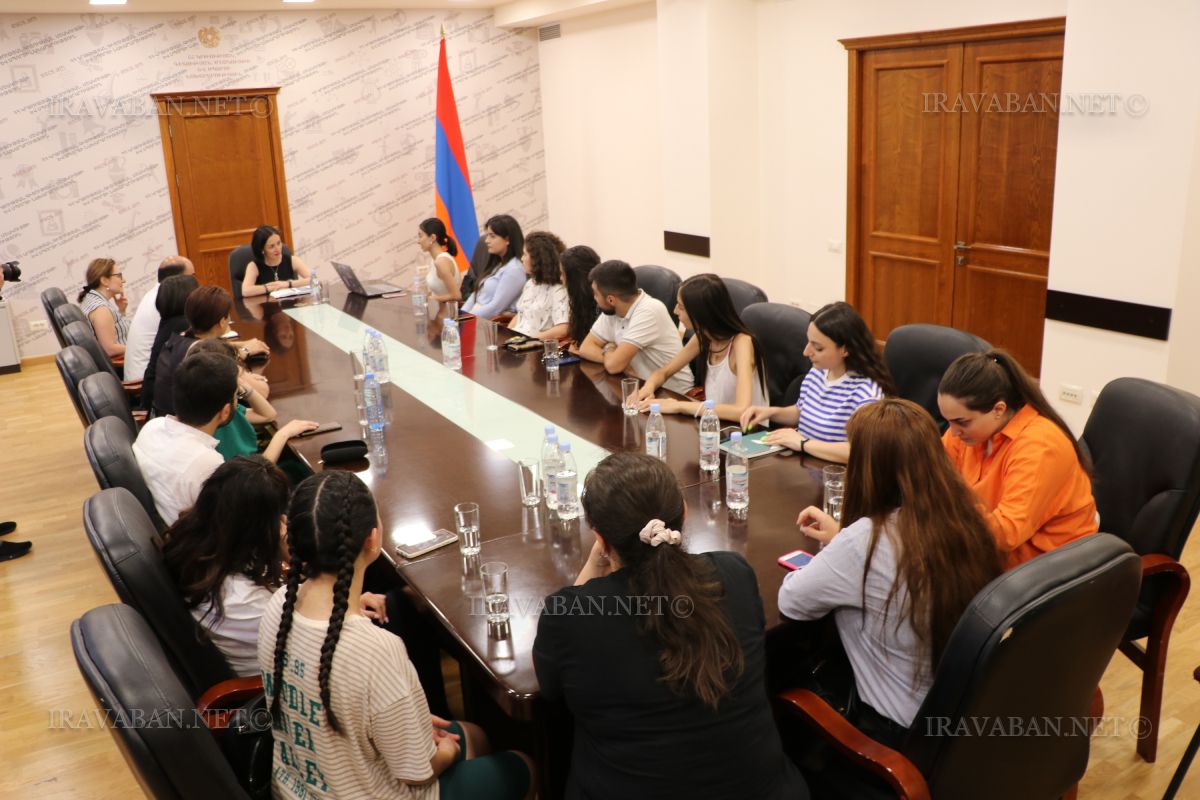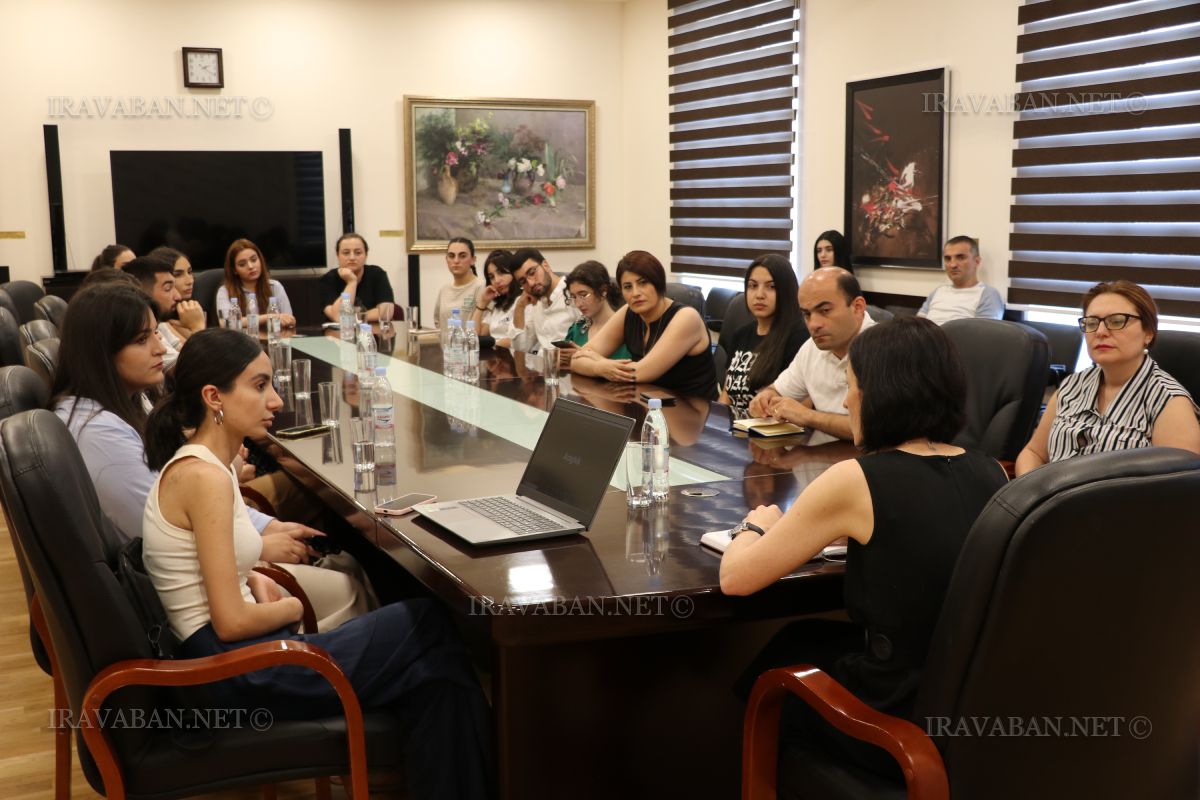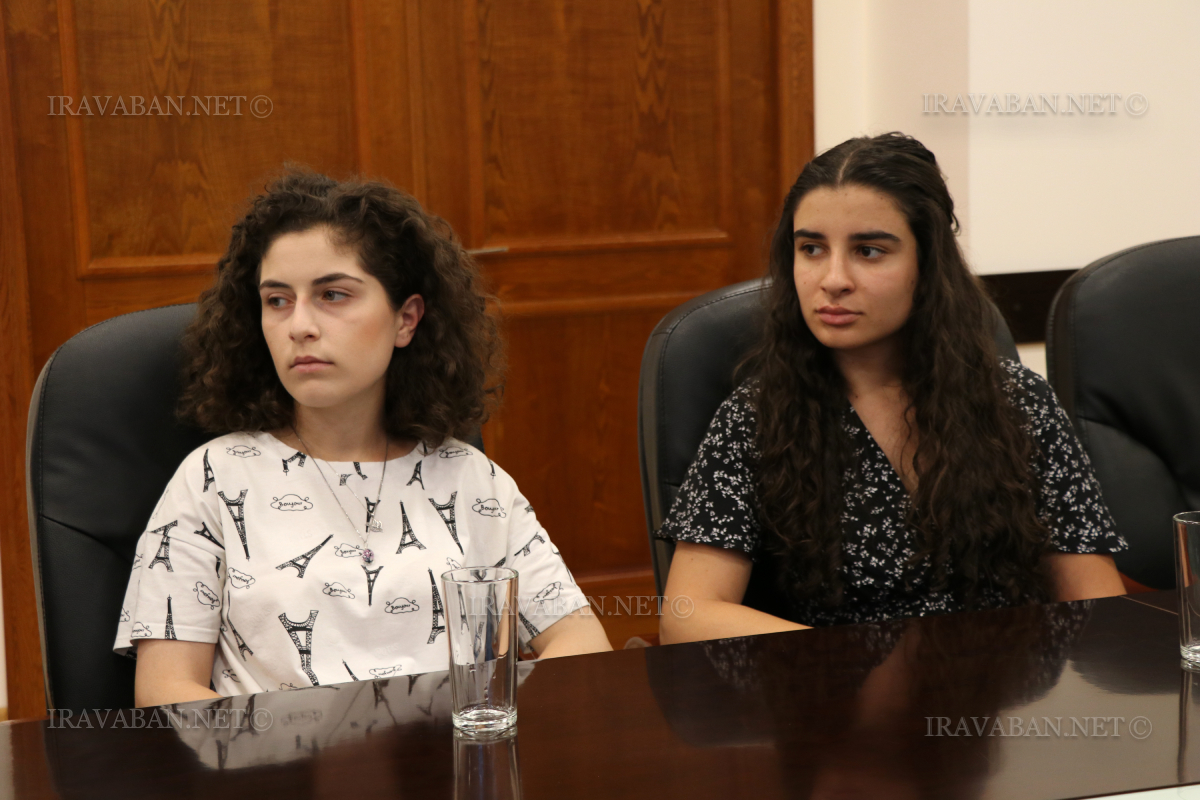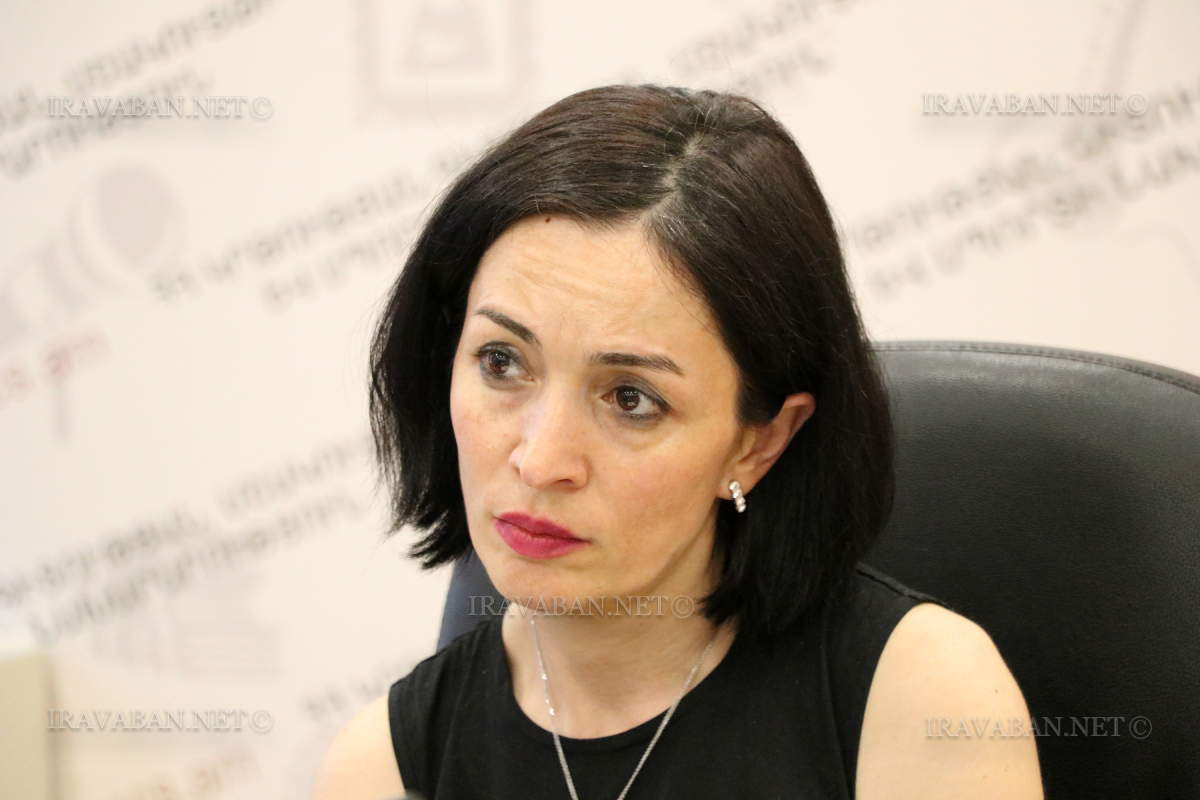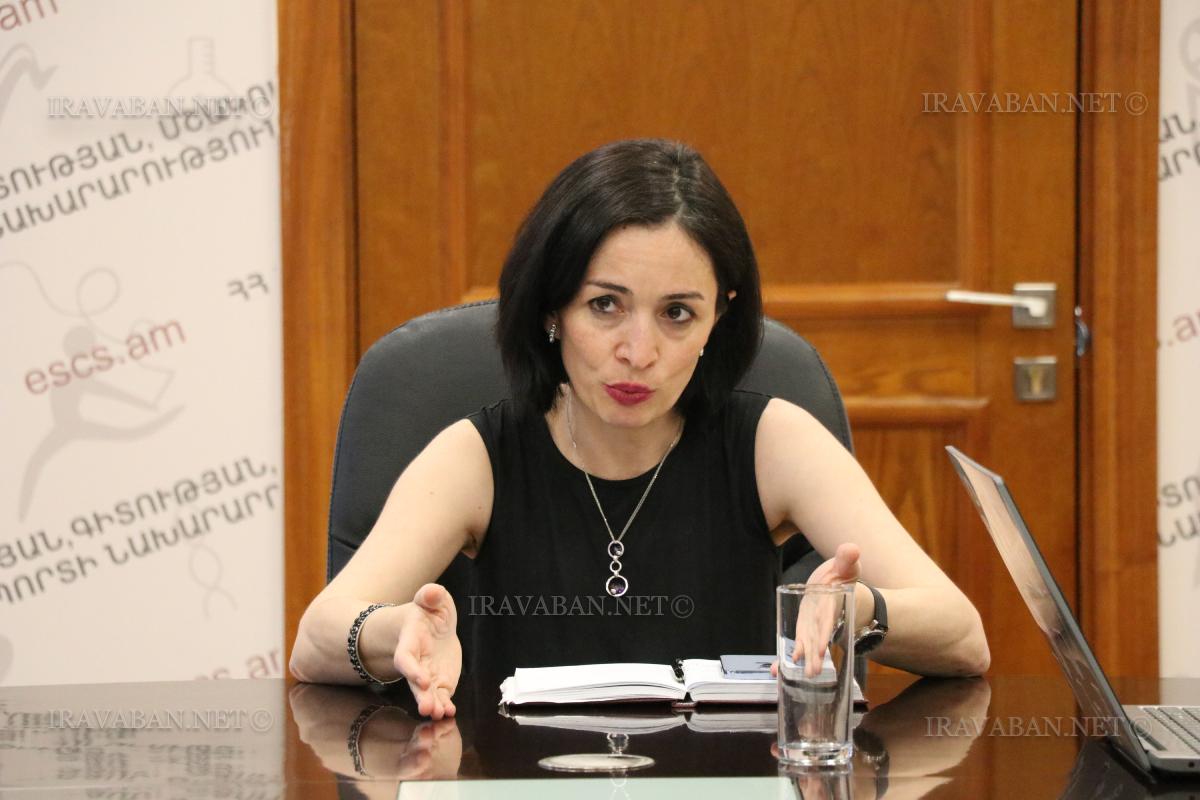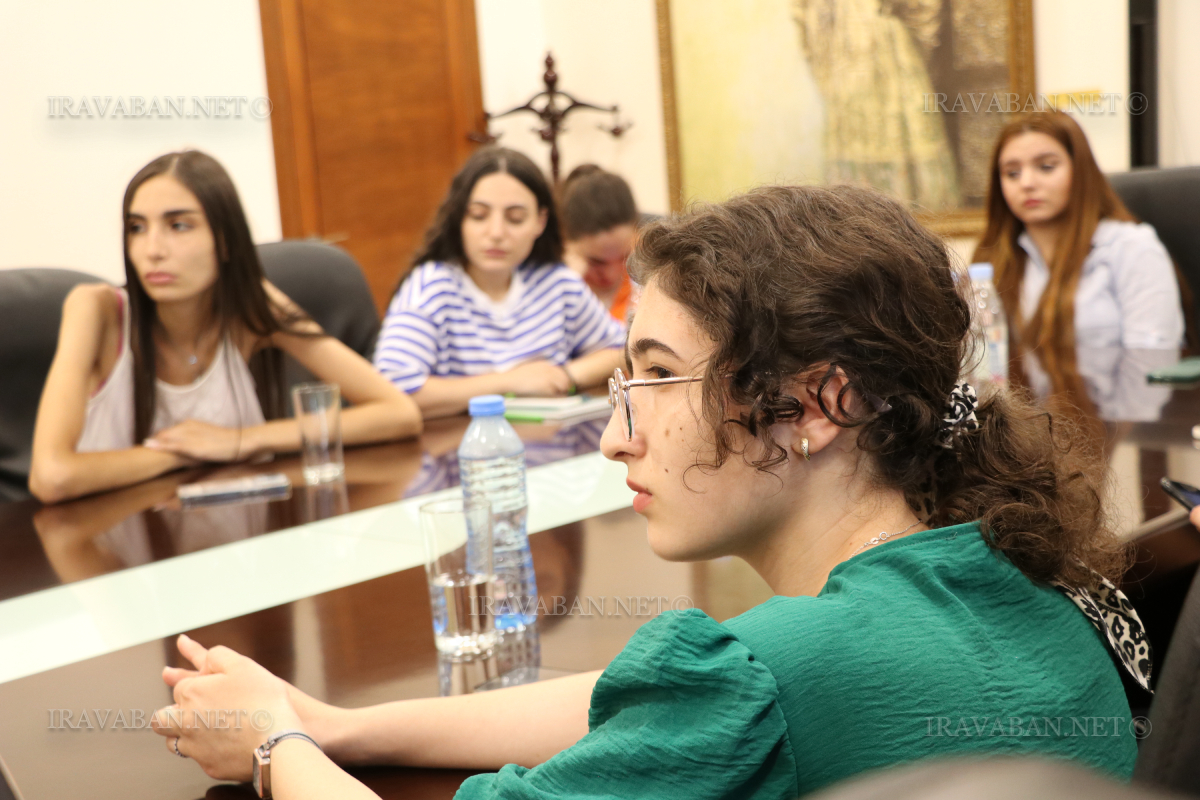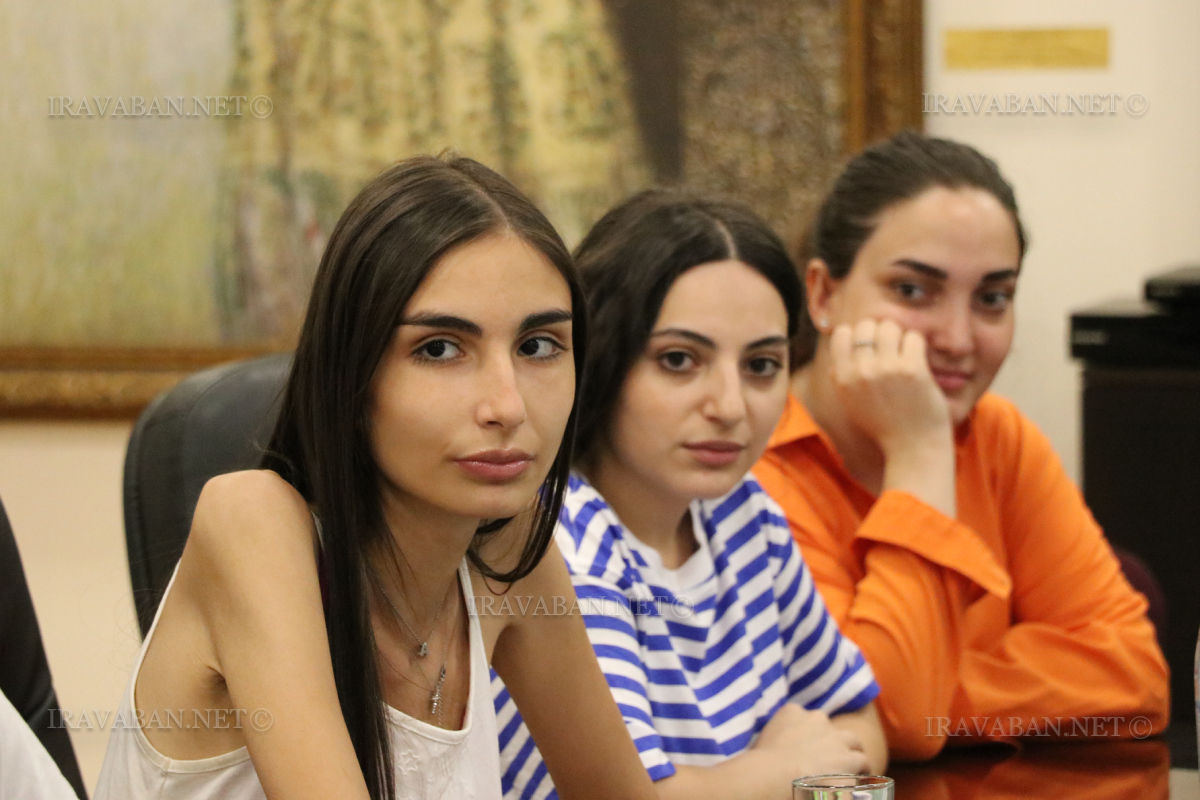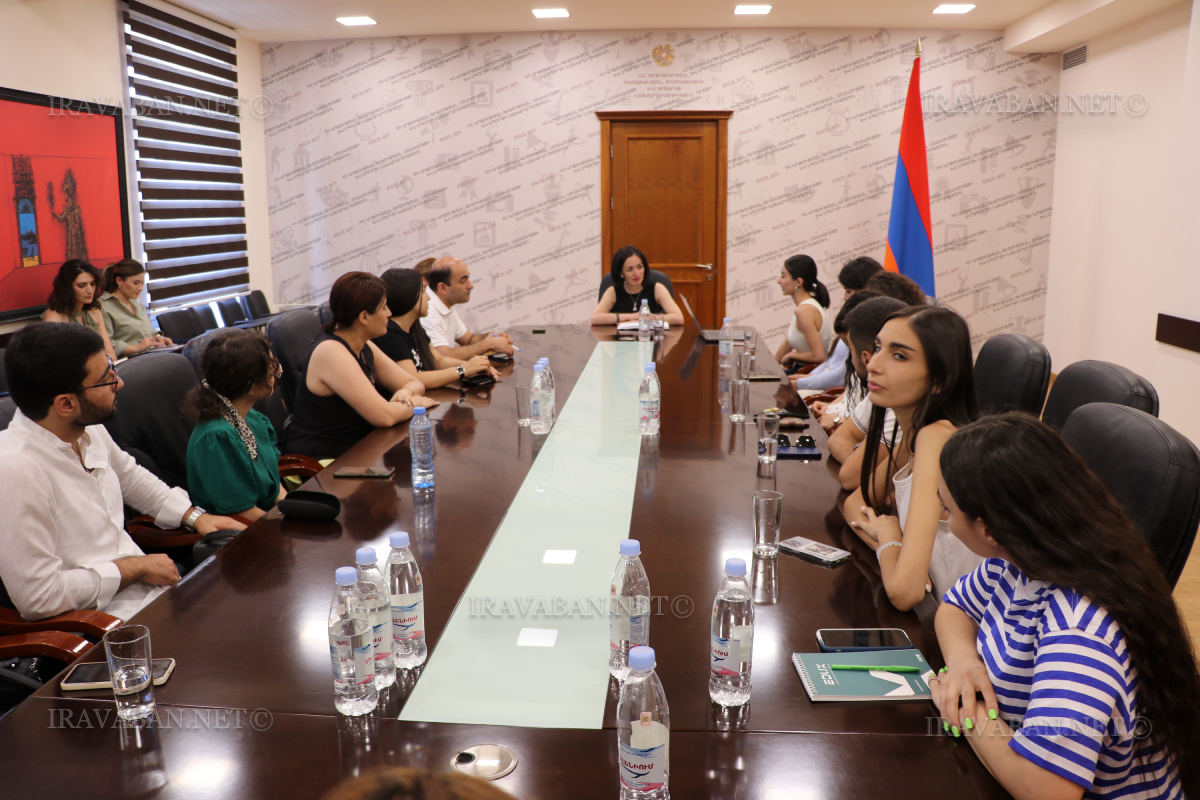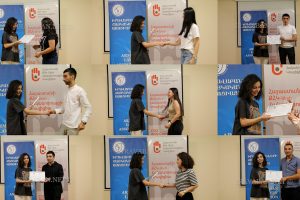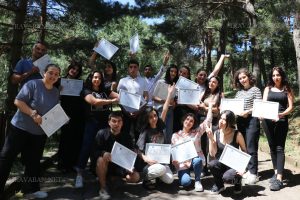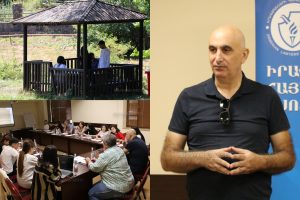On 26 July, students of 9th stream of the Anti-Corruption School for Young Leaders, the 1st anti-corruption professional educational initiative operating in the Republic of Armenia, within the framework of the master classes and practical skills development phase of the school, visited the Ministry of Education, Science, Culture and Sports of the Republic of Armenia where they met the Minister Ms Zhanna Andreasyan
Zhanna Andreasyan welcomed the attendees, including the participant from Artsakh who joined the meeting online, and expressed hope that the latter will have the opportunity to participate in the next meetings in person.
The Minister of ESCS presented the state policy on anti-corruption education, the works and problems in the field, answered the questions of the students of the Anti-corruption school.
“It’s no secret that the most important tool in the fight against corruption is education, with which we equip our children to behave correctly in appropriate situations,” the Minister noted, informing the audience that the new state standard of general education will be introduced in all schools in a phased manner from this academic year. In this context, Zhanna Andreasyan also referred to anti-corruption education. “The simplest form of anti-corruption education is awareness, transfer of knowledge, but our main task is the formation of the code of conduct. The key change of the new standard is that the learner should be given not only knowledge, but also values, position, and attitude, which implies complex education. In this sense, the code of conduct for anti-corruption education is being formed,” she said.
Speaking about the correct ways of organizing education, the ways to prevent corruption, the Minister of Education, Science, Culture and Sports emphasized the need for systematic organization of work and the exclusion of the system from being dependent on one person. As an example of a systemic solution in the field, the Minister mentioned the digitization process, which was an objective solution for the organization of the educational process during the COVID-19 pandemic.
“Digitalization has made many problems more visible, and accordingly, the solution directions have also become clearer. The evaluation system was digitized first, which prevents many unhealthy processes. Certificates have also been digitized since last year, which also reduces the human factor in the process,” Zhanna Andreasyan said and noted that the changes were also made in order to improve the operating mechanisms. She emphasized the importance of following legislation and the need for continuous reforms to improve the lives of the public.
“In order to succeed in any process and see results, the mutual trust of the society and the state is important,” the Minister of ESCS said.
Next, the attendees asked questions to Zhanna Andreasyan they were concerned about, related to the corruption risks in the field, the effectiveness of the organization of the educational process, etc. The students, in particular, referred to the organization of university entrance exams, the allocation of deferment places, the protection of students’ interests, the procedure for financing PET institutions, the possibilities of opening eco-clubs in schools, etc.
The Minister also referred to the issue of removing the History of the Armenian Church from the school curriculum. According to Zhanna Andreasyan, this was done to make the materials related to the same events systematic and connected. She noted that the History of the Church is inextricably linked with the Armenian history and it is not advisable to separate them.
Notably, the training in the Anti-Corruption School for Young Leaders will be organized in the following phases:
- ONLINE TRAINING PHASE, during which the students will pass a basic anti-corruption course consisting of 25 topics through the school’s online anti-corruption training platform. Those students who have completed all the knowledge test questionnaires and received the appropriate points for completing the online training will be considered completed the online training phase.
- MASTER CLASS AND PRACTICAL SKILLS DEVELOPMENT PHASE, during which students who have successfully completed the advanced stage of school will be divided into groups and each group will conduct a study, monitoring or investigation on one of the in-depth anti-corruption topics. During this phase, the work will be organized in the form of group meetings, discussions, and meetings with representatives of the sectors and other relevant bodies and organizations. Attendees will learn a range of innovative tools and gain related skills. At this stage, mentoring for groups is planned.
- PUBLIC AWARENESS PHASE, during which students who have successfully completed the practical skills development phase of the school will have the opportunity to disseminate their anti-corruption knowledge among young people through public awareness seminars.
- ADVANCED TRAINING PHASE, during which the best 15-20 participants who have achieved high results in the online training phase of the school, successfully completed the in-depth interview phase and are selected, will participate in the outreach (out of Yerevan) in-depth anti-corruption training. The in-depth training phase of the school will consist of the modules: “Anti-Corruption Advanced Training” and “Pillars of National Identity”.
- FINAL PHASE, during which the students, who have successfully completed the practical skills development and public awareness stages of the school, will present their research and public awareness results to the reputable jury and the public.
Students who have passed and successfully graduated from all five phases of the School will be awarded GRADUATION CERTIFICATES of Anti-Corruption School for Young Leaders.
“The Armenian Lawyers’ Association” NGO is organizing the Anti-Corruption School for Young Leaders in cooperation with the CSO Anti-Corruption Coalition of Armenia.
The information partner of the Anti-Corruption School for Young Leaders is Iravaban.net, independent professional news website.


